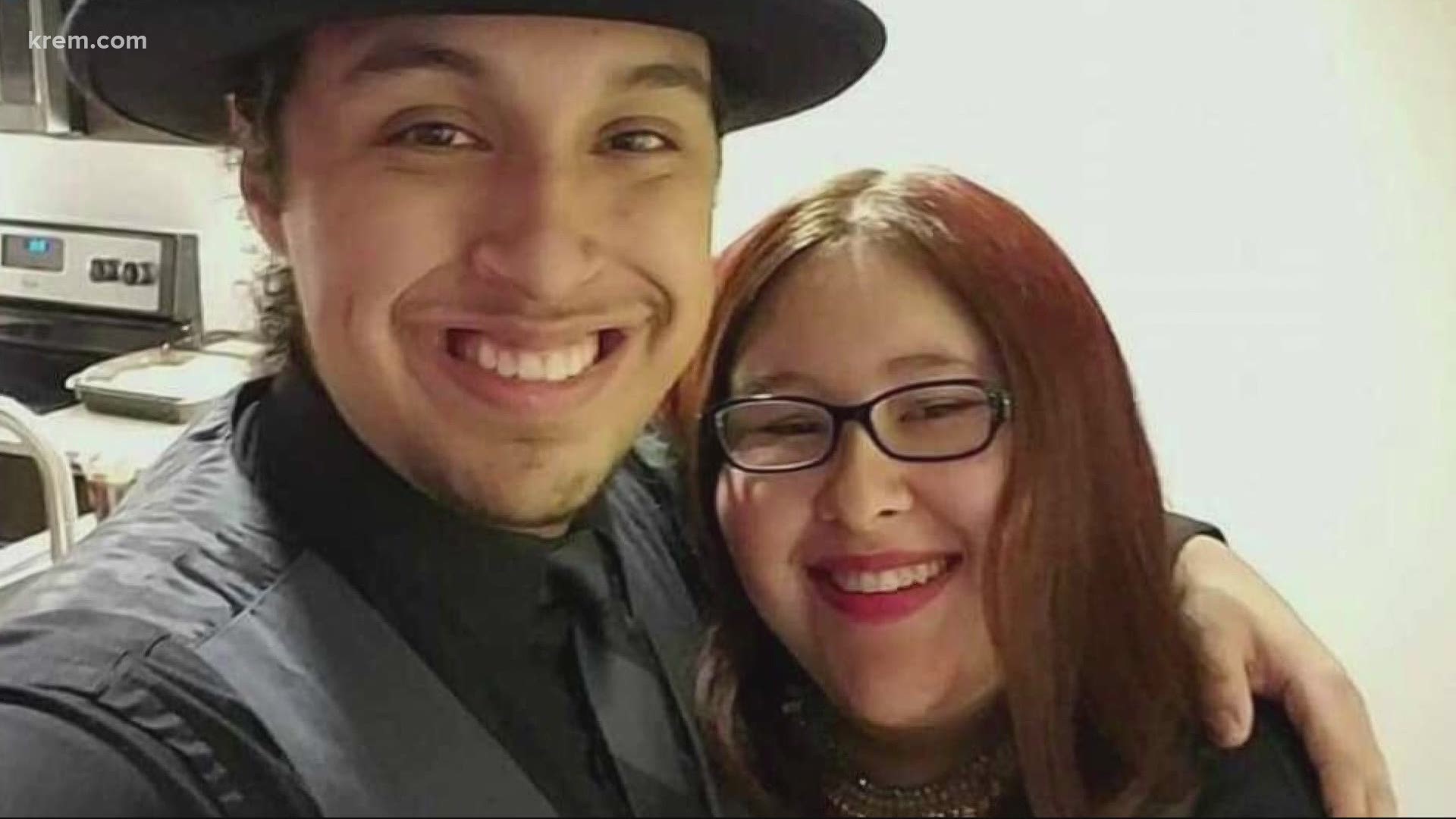SPOKANE, Wash. — Alli Talmage, 26, was about halfway through a shift at Starbucks on July 24 when she experienced something bizarre. She went out to her car to drink some water and couldn't do it without having a coughing fit.
"I worked for a couple more hours and, once I was off, the cough was super persistent and wouldn't stop," she said.
Talmage, a graduate of Gonzaga University who currently lives in Richland, then began to feel heaviness in her chest and body aches. She tested positive for COVID-19 just one day after her symptoms began.
About 24 hours after her cough started, Talmage said she lost her senses of taste and smell. Medical experts have said this is an early symptom of the virus for some who contract it.
According to an Otolaryngology-Head and Neck surgeon from Johns Hopkins University, the majority of patients with COVID-19 regain these senses within the first few weeks of infection, but a significant amount of people could develop a longer loss of their senses.
Talmage is an otherwise healthy young adult with no underlying medical conditions. After she tested positive for the coronavirus, her symptoms got worse. She experienced a lot of phlegm, sneezing, more body aches and extreme fatigue, among other things.
“One of the weirdest symptoms I had, though, was kidney pain. People are noticing that that’s a thing as well," she said.
Talmage is part of a Facebook group for COVID-19 survivors, where people with the virus have also reported kidney pain and shared about concerns from their doctors. She sees posts every day now from people with new symptoms that she is also experiencing.
“It’s almost like you have a laundry list of things that are wrong with you now," she said with a laugh. "It’s really strange.”
Two weeks after her positive COVID-19 test, Talmage was tested again — and that second test also came back positive. Now, nearly one month after her first test, she is still experiencing lingering symptoms of the virus.
Doctors are still searching for answers as to why some formerly healthy people have COVID-19 symptoms that lingers for many weeks or months. Some of these patients refer to themselves as "long-haulers." Talmage may fall into that group of people.
According to a February 2020 report from the World Health Organization, recovery from a “mild” case of COVID-19 takes about two weeks, while “severe or critical” forms of the disease my take up to six weeks. Despite the length of time that her symptoms have persisted, Talmage describes her case as "mild."
Talmage's lost of taste and smells "comes in and out" throughout the day, she said, with the most profound impact happening in the morning. Her left ear has also been plugged for weeks, she continues to cough up mucus and some of her hair is falling out. The fatigue hasn't gone away either.
“Walking around and doing stuff, you get really, really exhausted really quickly," Talmage said.
She shared a story about being on her feet for four hours one day and feeling such soreness in her calves the next day that she could barely walk.
Some of the most difficult parts about battling the virus have been the isolation and Talmage's boyfriend, who lives with her, watching her battle the debilitating symptoms.
"The isolation is unreal. It’s almost like everybody else has forgotten about it, so the fact that I got it so late is really frustrating since, like, people are going out and getting married and doing all these things. And I see it and I’m like, ‘Oh my gosh. If you get it, you might have lifelong effects,'" she said.
A support system made up of friends in Richland who have brought her soup, medicine and other items to aid in her recovery has made the isolation easier to bear, Talmage said. But the virus has still taken its toll on her mental health.
“It’s debilitating mentally," she said.
Another hurdle exists in figuring out when Talmage can return to her job at Starbucks. Before the pandemic, she was teaching theater at Richland High School and performing with a handful of local theater companies.
Talmage said she and her boss have had discussions about which of her symptoms might be considered those of a "long-hauler" and which ones are not. Her workplace was able to pay her for the first quarantine, but not the second, she added.
Thankfully, Talmage has not had to visit an urgent care or emergency room during her time with COVID-19. Her oxygen levels have never dipped below 97 percent and her temperatures was never above 100 degrees, though she did suffer from chills and hot flashes.
"The first day, when I woke up the next morning, I literally took the comforter from the bed and brought it to the couch and just like laid here," Talmage said. "And you get really big hot flashes, too. It’s like one minute I would be so cold I couldn’t have my arms out of the blanket and the next minute I would be so hot that I didn’t even want to wear clothes.”
Talmage urged people who are not taking coronavirus seriously to do so, as it can affect anyone at any age.
“My message would be to take this really seriously because I would categorize my COVID case as a mild case, but I’m still suffering four weeks later," she said. "And it’s really hard and really isolating. And it’s new – we don’t understand what kind of effects could happen.
Talmage added that the father of her boyfriend's coworker died due to COVID-19 complications.
“People will die and people have been dying. You don’t have frail you are, or how fragile you are, until you get it," she said. "It doesn’t affect people of a certain age, it doesn’t affect people of a certain creed. It’ll just get you. And It’s really debilitating, so people need to take it seriously.”


